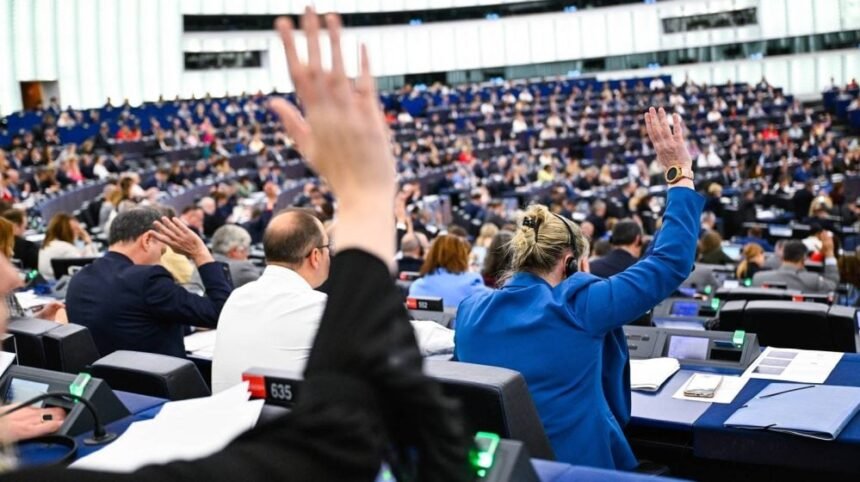Croatian Members of the European Parliament (MEPs) today emphasized the importance of the European Union’s (EU) enlargement policy in Strasbourg. However, they stressed that candidate countries must advance towards membership based on their individual merits, noting that some, including Serbia, are regressing in the process.
During a debate on the political and institutional implications of EU enlargement at the plenary session in Strasbourg, the EP’s rapporteur for Serbia, Tonino Picula, stated that the geopolitical situation in the world is “a good argument in favor of continuing the enlargement policy,” but that the Copenhagen criteria—the conditions every country must meet to join the EU—”must be consistently implemented in practice,” HINA reported.
“The EU should provide support only for real, not fictitious, reforms and react positively immediately when criteria are met. Insisting on the rule of law and European values, as well as on a harmonized geopolitical orientation, must be the foundations for continuing the enlargement policy,” said Picula, an MEP from the Social Democratic Party of Croatia.
Serbia as a “Destabilizing Factor”
Tomislav Sokol, an MEP from the Croatian Democratic Union (HDZ), said that EU enlargement has become relevant again due to changed geopolitical circumstances, but that candidate countries should be assessed “individually” and based on their ability “to adopt European standards.”
“Unfortunately, on that matter, we do not see progress, but mostly regression. Serbia is absolutely the biggest destabilizing factor in Southeast Europe. Its hegemonic policy threatens the independence and sovereignty of neighboring countries. It is clear that such a Serbia today has no place in the European Union,” Sokol stated.
His party colleague, Davor Ivo Stier, also said that “the approach must remain individual,” stating that Serbia does not show “political will” to join the Union.
“The leadership of Serbia does not want to fulfill European criteria, especially in foreign policy. Instead of grandiose statements, unrealistic expectations, and subsequent frustrations, it is much better to accept the reality that Serbia is a country that does not want to align with the EU,” Stier said, adding that the EU must ensure that such a policy does not affect the European path of other Western Balkan countries.
Albania’s Progress and Other Candidates
Stier noted that Albania is making the fastest progress in the Euro-integration process and that efforts should be made for the country, while respecting the criteria, to conclude accession negotiations with the EU before the end of the current EP mandate in 2029.
Regarding Ukraine’s candidacy, Stier said that the EU would “make a strategic mistake if it failed to recognize that Ukraine is showing capacity for European reforms despite the war and is demonstrating commitment to the European idea daily on the battlefield.” He added that Moldova has shown “strong political will,” unlike Georgia, whose accession process had to be halted because of this.
Another HDZ MEP, Karlo Ressler, stated that “Russian influence, Chinese investments, and anti-European regional actors who do not share European values are strengthening their presence precisely where Europe hesitates.”
“The credibility of the European enlargement policy is built precisely through stronger partnership with states and actors who share the aspiration for a common future, but also through tougher policies towards those who undermine Europe and its values,” Ressler noted.
He stated that North Macedonia has not moved closer to EU membership despite implemented reforms and difficult decisions, describing it as “an example of political injustice that undermines the European project.”
“In BiH (Bosnia and Herzegovina), however, separatist messages prevail on one side, and unrealistic unitarist ambitions on the other, while Montenegro is fighting for its European and Western orientation,” Ressler pointed out.







